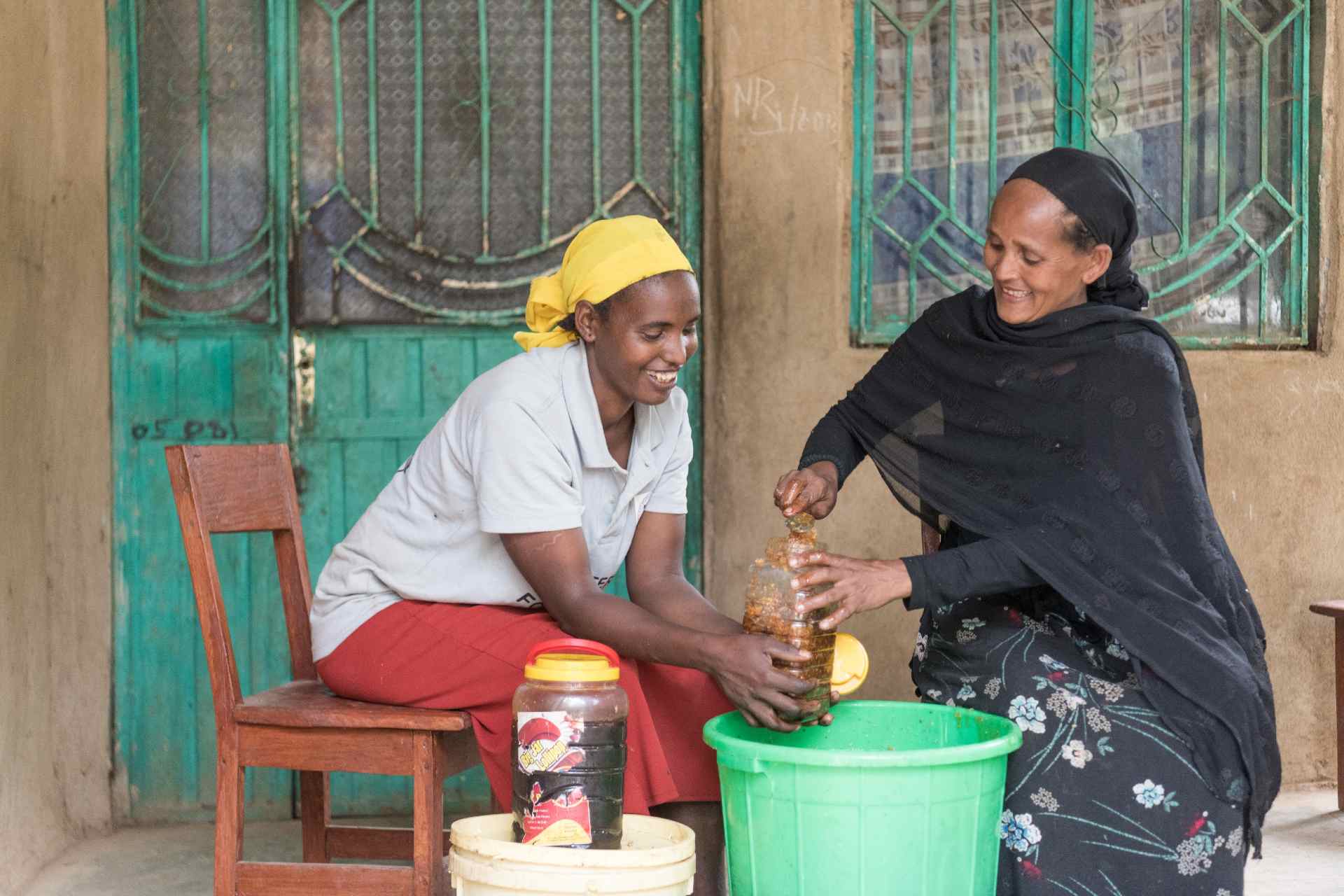
Non-Timber Forest Products micro-enterprises project (NTFP-ME)
.
Project Achievements
Overall the project has helped create a new range of NTFP focused micro-enterprises (12) linked to better managed and more viable coops (7) in the four districts. These micro-enterprises provide increased forest income which spreads widely across communities, with some focused on women alone. Increased NTFP income will encourage communities to value the forest more highly and develop further their existing monitoring regimes to ensure that the forest and its biodiversity are protected and managed sustainably.
Outputs from the project include:
- Five honey micro-enterprises producing high quality honey and generating income from sales to Apinec and other buyers, including the Bench Sheko Cooperative Union.
- Three micro-enterprises established for production and sale of forest fruit jams/dried products. Specifically the fruits of Manilkara butuji, Pouteria altisima, Morus mesozygia and Ch‟atu (scientific name unknown). These activities are linked to the private company ecopia.
- Four micro-enterprises established for sale of long pepper, cardamom and other spices with national and potentially international markets.
- Empowerment of women through micro-enterprises which are a) entirely female-led and b) not male dominated. These development generate income for women, reduce their reliance on their husbands and provide a forum through which women can discuss socio-economic and other issues relevant to them and build their leadership skills and confidence to engage in other fora.
- Analysis of chemical properties of Forest Mahogany ( Trichilia dregeana) undertaken and shared with communities, Ethiopian Biodiversity Institute, and possible commercial partners.
- Biodiversity measuring methods, using key indicator species, developed and applied by communities in order to monitor and maintain biodiversity in all micro enterprise sites.
- Policy makers made aware of potential roles of NTFPs, micro-enterprises and women in sustainable management of forests.
- Community forest management activities enhanced and forest management plans reviewed and updated to account for value of NTFPs traded by micro-enterprises and need for detailed biodiversity.
- Revised management plans approved by local government and used to strengthen regional government forest policy reform and its support for sustainable forest utilisation as the approach to maintaining natural forest.
In the longer term the project should also help reduce rates of deforestation, increase understanding of the role of NTFPs, MEs and women in active forest management and improve the economic value of the forest and contribute to the national Climate Resilient Green Economy policy.
Lessons learned from the project concerning these developments are being documented and shared with government and international agencies and NGOs working in this area.